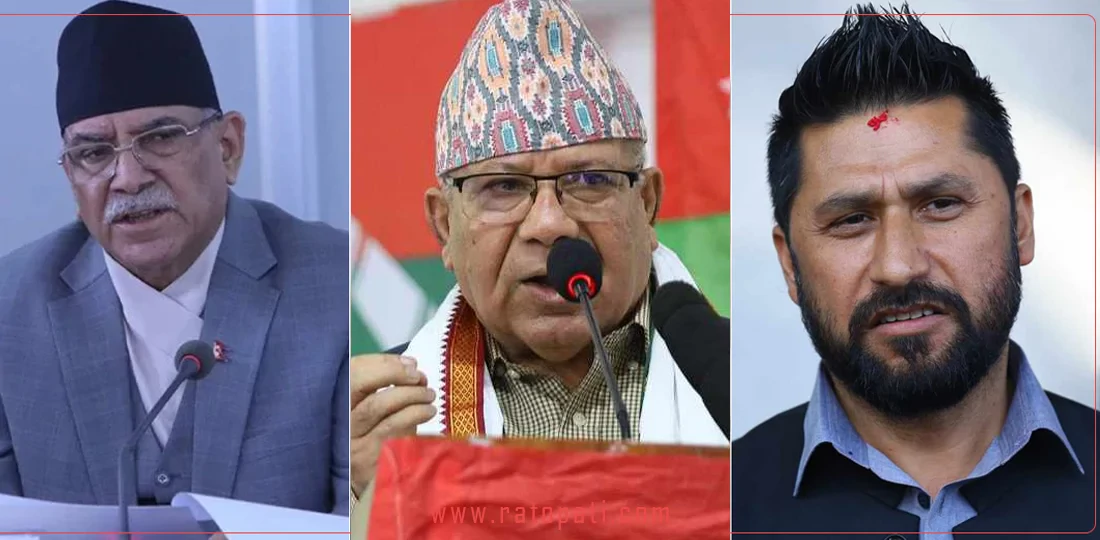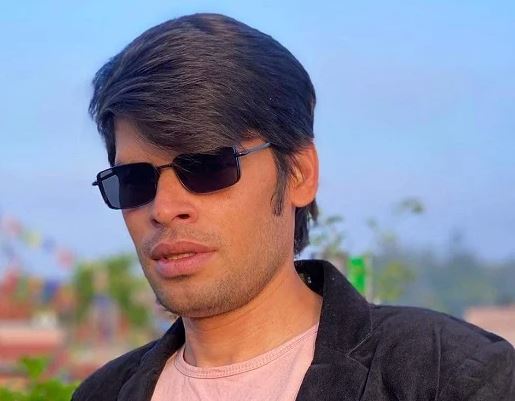Opposition plans vigorous movement against government post-festival

Kathmandu, October 18 — The major opposition party, the CPN (Maoist Centre), along with other opposition factions, is preparing to launch a vigorous movement against the government immediately following the conclusion of the Tihar and Chhath festivals.
The coalition government formed between the Nepali Congress and the CPN (UML) will complete one hundred days in office on October 26. Leaders of the opposition assert that they are strategising to strengthen both parliamentary and street protests by further reviewing the government's performance to date. They conclude that the actions taken by the government led by KP Sharma Oli over the past three months have been disappointing.
Maoist Centre leaders claim that the government has completely failed in terms of good governance, social justice, prosperity, and livelihoods. They have indicated that the Central Committee meeting will propose public mobilization and street struggle programmes. Secretary of the Maoist Centre, Devendra Paudel, stated that they would initiate street and parliamentary struggles immediately after the Chhath festival, aiming to make the Socialist Front more effective.
“Given that it is the Dashain and Tihar season, the party currently has no plans. The upcoming Central Committee meeting will introduce programmes for public mobilization. After reviewing the government's performance over its hundred days, we will launch robust street protests following Chhath,” Paudel remarked in an interview on Thursday. “The chairperson has indicated that a Central Committee meeting will be held before Tihar. We will activate the Socialist Front as well. We plan to collaborate and form alliances with patriotic, leftist, and socialist forces as needed.”
On July 1, an agreement comprising seven points was reached between Congress President Sher Bahadur Deuba and UML Chairman Oli, paving the way for a government that includes constitutional amendments and a rotational leadership structure. Consequently, Oli assumed the role of Prime Minister on July 15 based on this agreement.
The government led by Prachanda had initiated investigations into significant corruption cases including Lalita Niwas, fake Bhutanese refugees, gold smuggling, Yeti Airlines, Omni Group, and Giribandhu Tea Estate. The Maoists are preparing to exert joint pressure from both Parliament and the streets to advance these corruption cases against the government. The opposition parties have concluded that the Oli-led government has been increasingly unpopular, particularly accusing it of concealing major corruption cases involving Congress and UML leaders.
Opposition parties are preparing to capitalize on the growing dissatisfaction among the populace against the government. With constitutional amendments at the forefront of the seven-point agreement between Congress and UML, the Maoist Centre has expressed concerns. The party aims to apply pressure through public mobilization and street movements regarding significant corruption cases led by Prachanda's government.
The fourth-largest party in Parliament, the Rashtriya Swotantra Party (RSP), has concluded that the Oli government has failed in terms of good governance, livelihoods, and economic growth. Following their Central Committee meeting on September 29, they noted the government's ineffectiveness in promoting good governance and livelihoods. RSP's spokesperson, Pratibha Rawal, stated they will launch public mobilization efforts immediately after the Chhath festival and are also working to convene a special session of Parliament.
"We are preparing to conduct district meetings of the party within a month and will initiate movements thereafter. Following the meetings, we will launch the Mechi-Mahakali campaign. The Oli government will also be completing its first hundred days,” she noted. “We will review the government's work and roll out public mobilization programmes after the Tihar and Chhath festivals. We have appealed for a special session of Parliament.”
RSP has expressed its expectation for the government to issue a white paper on constitutional amendments to affirm their appropriateness, yet this matter has now been overshadowed, according to their statement. Rawal clarified that there are no plans for collaboration with other opposition parties. RSP accused the Oli government of failing to demonstrate any preliminary signs of fulfilling its declared commitments even after three months in office. They criticized the government for failing to prepare adequately for disasters and for receiving land donations worth millions from businesses involved in ongoing legal disputes, undermining governance.
In light of rising public dissatisfaction and frustration among entrepreneurs, the opposition parties foresee the potential for unrest similar to recent uprisings in Sri Lanka and Bangladesh, which may also impact Nepal. Observing the public anger against the Oli government and the extreme dissatisfaction, they have concluded that this could lead to intensified movements.
The CPN (Unified Socialist) Party, embroiled in internal disputes following its 10th general convention in July, has stated that it has no current plans for a movement against government actions concerning livelihoods. Vice Chairman Jagannath Khatiwada indicated that due to the ongoing festival season, no movement plans have been made public. They will convene a meeting post-Chhath to deliberate on actions regarding livelihoods and the government's shortcomings.
"Currently, due to the festive season, we haven't made any decisions. We don't have a concrete programme for the movement yet. We will introduce movement plans after Chhath,” he remarked.
Despite being part of the Socialist Front, the Unified Socialist has not yet articulated a clear stance on joint movements.
Meanwhile, the Nepal Communist Party, currently outside of government, is preparing to convene a meeting of the Socialist Front. They have concluded that the current political situation is growing increasingly complicated. General Secretary Netra Bikram Chand 'Biplav', who is also the coordinator of the front, mentioned that discussions with other party leaders are ongoing regarding mobilization programmes.
"The Socialist Front has not been able to meet for a long time. The current political situation in the country is becoming increasingly complex. We are in continuous discussions with other party leaders about mobilization programmes and will likely convene a meeting within a day or two," Biplav added.
He also noted that discussions are ongoing with the Maoist Centre about strengthening the Socialist Front while advancing party unity. Following the Maoist Centre's Central Committee meeting, he asserted that they would introduce strong mobilization programmes on national issues.
The growing unpopularity of the Oli government within just three months can be attributed to extreme negligence in disaster management, transfers of police officials involved in investigations into major corruption cases such as Lalita Niwas and fake Bhutanese refugees, as well as attempts to remove Kulman Ghising, the chief executive of the Nepal Electricity Authority, for collecting dues from industries still owing on electricity bills.
With the rising public dissatisfaction towards the government, the opposition parties perceive the risk of potential uprisings akin to those seen in neighboring South Asian countries, reflecting on the growing agitation against the Oli government and the extreme frustration that could fuel more pronounced movements.










Leave Comment